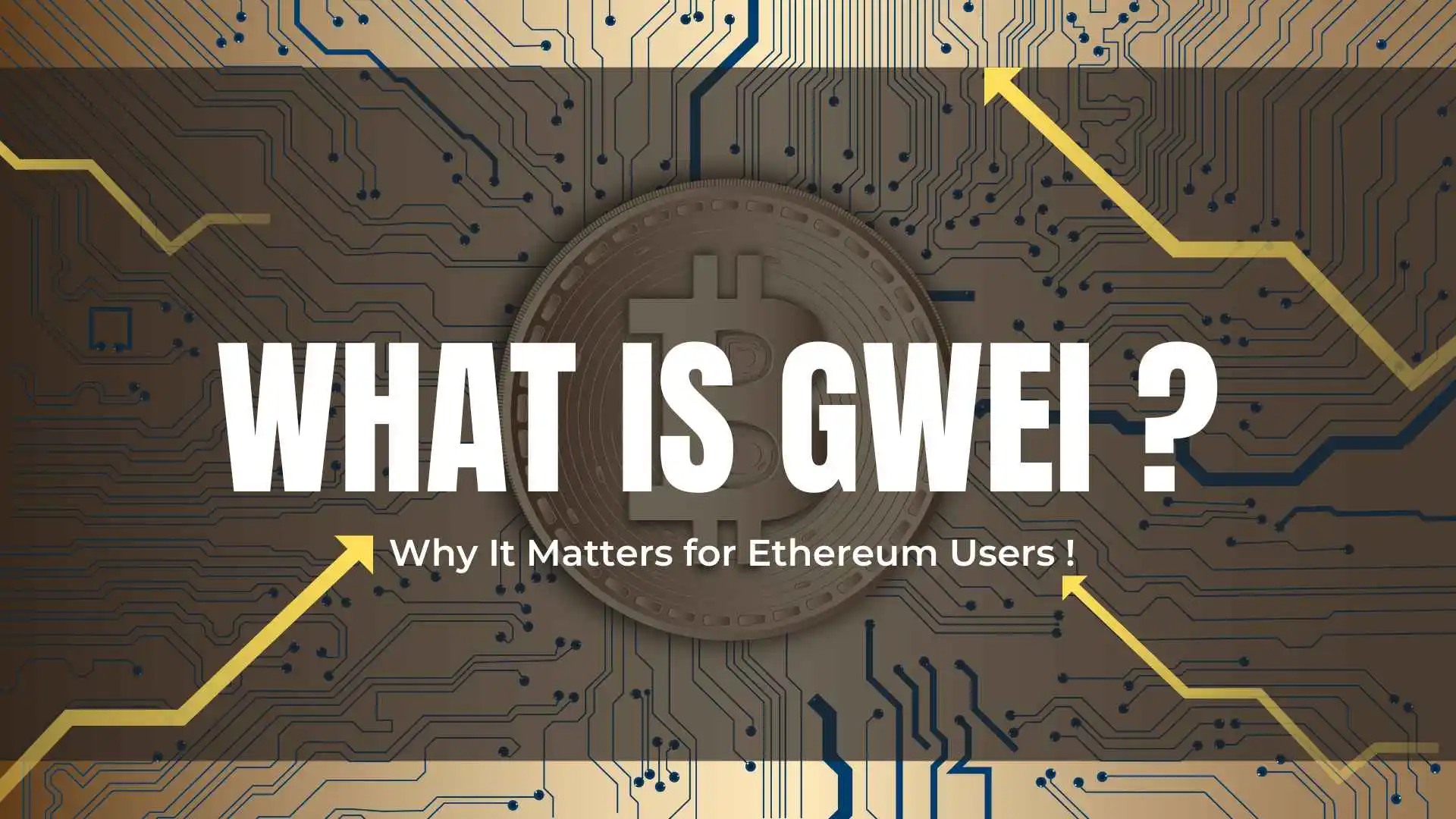
If you’ve ever sent Ethereum (ETH), you’ve probably come across the term Gwei. But what exactly is it, and why is it so important? Let’s dive into this key concept and explore how it impacts Ethereum transactions.
What is Gwei? Explained Simply 🧮
Gwei is a small unit of Ethereum, used to measure gas fees. One Gwei equals one-billionth of an ETH (0.000000001 ETH). This unit makes it easier to calculate transaction fees without dealing with long decimal numbers.
For example:
0.000021 ETH = 21 Gwei
0.0005 ETH = 500,000 Gwei
Just like cents are to dollars, Gwei helps break down ETH into smaller, more manageable amounts. Instead of quoting gas fees in ETH, which would involve many decimal places, Ethereum users and developers use Gwei for clarity and convenience.
Why Gwei Matters: Speed vs. Cost
Ethereum transactions aren’t free. To send ETH, interact with smart contracts, or trade tokens, you must pay a transaction fee in Gwei.
Gwei plays a crucial role in transaction speed because Ethereum uses a bidding system for transaction processing. The more Gwei you pay, the faster your transaction gets confirmed. Here’s why:
- Higher Gwei = Faster transaction confirmation 🚀
- Lower Gwei = Cheaper fees, but slower confirmation ⏳

During busy network periods, like NFT drops or DeFi launches, users often bid higher Gwei to get priority. If you want a quick transaction, you may need to increase the gas fee.
How to Calculate Ethereum Gas Fees 🧮
Gas fees on Ethereum depend on three key elements:
- Gas used – The computational effort required for the transaction.
- Base fee – A fixed cost set by the network (this changes with demand).
- Priority fee (tip) – An extra incentive to speed up your transaction.
The formula for gas fees is:
Total Fee = Gas Used × (Base Fee + Priority Fee)
For example:
- Sending ETH: Typically requires 21,000 gas units
- Executing a smart contract: May need 200,000+ gas units
If the base fee is 20 Gwei and the priority fee is 5 Gwei, then the total fee for a simple ETH transaction would be:
21,000 × (20 + 5) = 525,000 Gwei (or 0.000525 ETH)
Why Gwei Prices Fluctuate 📈📉
Gwei prices rise and fall based on network activity. High demand, such as during NFT drops or DeFi launches, can cause fees to spike. Similarly, major upgrades to Ethereum often impact Gwei costs.
Understanding Gwei helps you:
- Save money during quiet periods.
- Avoid overpaying during peak times.
How to Save on Ethereum Gas Fees 💡
Here are some strategies to pay less in transaction fees:
- Use Ethereum During Off-Peak Hours ⏳
- Gas fees are often lower on weekends and during late-night hours (UTC time).
- Optimize Smart Contract Interactions ⚙️
- Some contracts are optimized for lower gas fees. Look for efficient dApps.
- Use Layer-2 Solutions 🚀
- Platforms like Arbitrum, Optimism, and Polygon offer lower transaction fees compared to Ethereum’s main network.
- Adjust Your Gas Limit Wisely 📊
- Some wallets allow you to set custom gas limits. Be careful not to set it too low, or your transaction might fail.
The Future of Gwei and Ethereum 🌍
Ethereum is evolving to make gas fees more predictable and affordable. Key upgrades include:
- Ethereum 2.0 (Proof of Stake) – Reduces energy use and improves scalability.
- EIP-1559 (London Hard Fork) – Introduced a burn mechanism for gas fees, making ETH deflationary.
- Sharding & Rollups – Will significantly cut gas costs by processing transactions off-chain.
As Ethereum continues to grow, users can expect lower fees, faster transactions, and a more efficient network.
Why Understanding Gwei is Key 🔑
Gwei simplifies Ethereum’s fee system, empowering users to make smarter choices. Whether you’re an investor, a developer, or just curious about crypto, mastering Gwei gives you more control over your transactions.
Stay Updated with the Latest Crypto Trends 📰
For more insights on Ethereum, DeFi, and crypto trading automation, visit our blog regularly. We provide expert tips and industry updates to keep you ahead in the fast-changing world of blockchain! 🚀✨
source : crypto news

